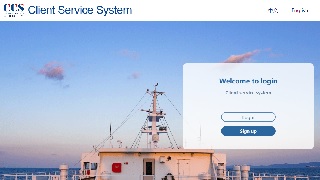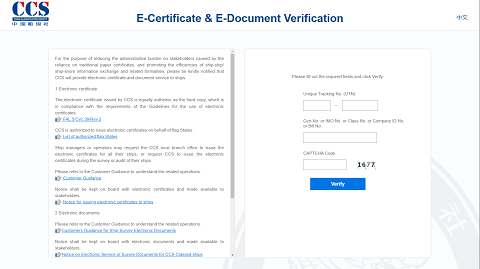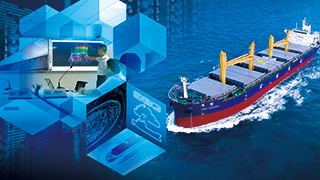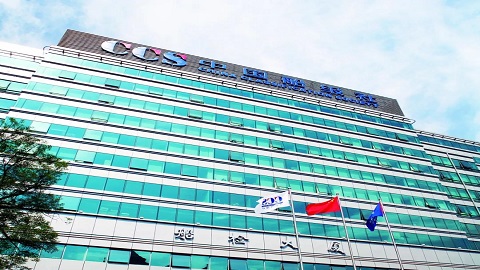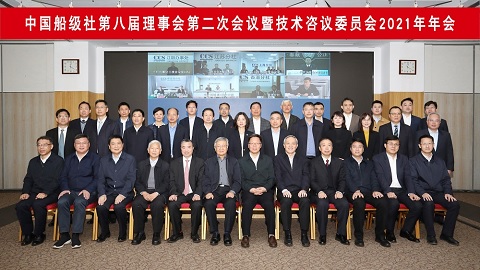As
a leading professional maritime classification organization in China, China
Classification Society (CCS) has long been at the forefront of
safeguarding global shipping safety. Against the backdrop of growing
international demand for more robust, timely maritime emergency support, CCS
officially launched its signature "Emergency
Response Service (ERS)" in 2005—positioning it as an
independent, specialized service product to address critical gaps in ship
emergency technical assistance.
1. Core Purpose & Service Scope
ERS
is designed to act as a "technical safety net" for ships facing
life-threatening or property-endangering emergencies. It exclusively serves
vessels where the shipowner or ship management company has:
● Pre-signed an ERS cooperation agreement with CCS;
● Established a customized Emergency Response
Database (containing
core data on the ship’s stability, structural strength, and cargo
characteristics—foundational for rapid emergency analysis).
When
a ship encounters crises that threaten its safety, ERS provides data-driven
technical solutions to help mitigate risks, protect crew lives, and minimize
environmental harm.
2. Key Emergency Scenarios Addressed
ERS
responds to a full spectrum of maritime emergencies, including but not limited
to:
● Hull integrity crises: Flooding (e.g., from hull
breaches), grounding, collision damage, hull structural failure, and excessive
heel (risk of capsizing);
● Hazardous events: Onboard
explosions, fires, failures of cargo containment systems (critical for bulk or
hazardous cargo ships), and cargo liquefaction (a major risk for solid bulk
carriers);
● Environmental risk incidents:
Oil spills or other pollutant leaks (where timely analysis helps contain spread
and reduce ecological impact).
3. Rapid Response Mechanism
ERS
operates on a streamlined, time-sensitive workflow to ensure support reaches
ships in distress as quickly as possible:
● Request Trigger: The shipowner or vessel initiates an ERS
request upon detecting an emergency;
● Team Mobilization: CCS’s permanent
shore-based Emergency Response Team assembles immediately—comprising naval
architects, structural engineers, and maritime safety specialists;
● Data Activation: The
pre-established ship-specific Emergency Response Database is unlocked to
retrieve real-time, accurate data (e.g., original stability curves, structural
load limits);
● Targeted Analysis: Engineers
conduct urgent calculations based on the shipowner’s needs, including:
Damaged stability assessment (to
determine if the ship can remain afloat and stable);
Residual strength evaluation (to check if the
hull can withstand remaining loads);
Oil spill trajectory and
containment analysis (to guide pollution control);
● Decision Support: The analysis results are delivered promptly
as technical references for the captain and shipowner to make safe, effective
final decisions (e.g., whether to pump out water, adjust cargo distribution, or
seek salvage).
4. Core Advantage: 24/7 Uninterrupted Support
The
most critical strength of ERS is its round-the-clock availability—it
provides technical support 24 hours a day, 365 days a year. In maritime
emergencies, where delays of even minutes can lead to catastrophic consequences
(e.g., a flooded cabin worsening into capsizing, or an oil spill spreading to
sensitive marine areas), this non-stop service ensures no ship is left without
professional guidance.
For
example, if a ship collides and suffers hull damage, ERS can quickly assess
whether the remaining buoyancy is sufficient to keep the vessel stable—helping
the captain avoid missteps (such as improper ballasting) that could exacerbate
the crisis.
5. How to Access ERS & Contact Channels
CCS
has established clear, categorized contact paths to meet different needs:
5.1 Business Cooperation (Agreements & Database Setup)
For
signing ERS agreements, setting up the Emergency Response Database, or other
business-related matters, contact the ERS Working Group of the local CCS
Branch (located in the
region of the shipowner or ship management company).
5.2 Inquiries, Feedback & Non-Emergency Requests
For
general questions about ERS, service adjustments, or suggestions, reach
the ERS Working Group at CCS Headquarters:
● Contact Person: Sun Xianbo
● Telephone:
0086-21-38103515
● Fax: 0086-21-38103500
● Email: xbsun@ccs.org.cn
/ ers@ccs.org.cn
5.3 Emergency Hotline (Immediate Crisis Support)
In
case of an urgent emergency requiring instant ERS assistance, call the 24-hour
on-duty hotline of CCS Ship Emergency Response Center:
0086-10-58112333
/ 0086-21-3810-3599
6. Supporting Documents for Download
To
simplify the ERS application and cooperation process, CCS provides key
documents (with bilingual options where applicable) for Download.

